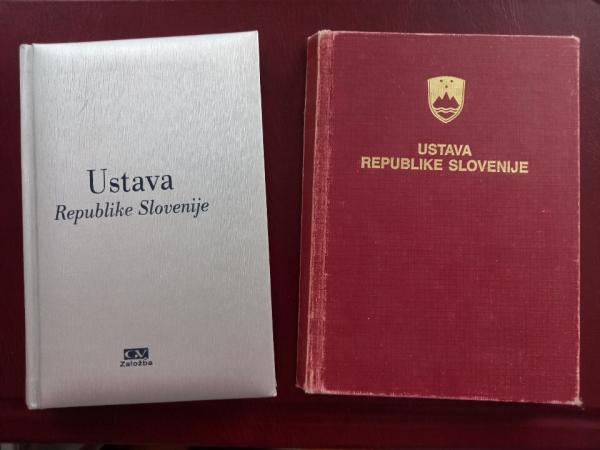Warnings of the Ombudsman regarding the Draft Act on Urgent Measures to Ensure Public Safety (Šutar's Law)
The Human Rights Ombudsman (Ombudsman) warns that extensive and substantively sensitive changes such as those brought by the Draft Act on Urgent Measures to Ensure Public Safety are not appropriate for adoption through an urgent procedure without adequate public debate and, above all, expert review. The Ombudsman expresses concern that the lack of consultation among key stakeholders reduces the quality and legitimacy of the legislative process.
The choice of the method for amending legal regulation falls within the legislator's discretion, but the Ombudsman points out that the proposed legal regulation must also be consistent with constitutional provisions, including the principle of clarity, semantic determinability, and the principle of legal certainty, as Article 2 of the Slovenian Constitution clearly states that Slovenia is a state governed by the rule of law. It is particularly important that all measures interfering with human rights, such as the rights to privacy, social security, and freedom of movement, are precisely defined in law, justified by a legitimate aim, and proportionate. An impact assessment on human rights must be carried out when formulating the proposed measures, while respecting the principle of equality before the law and respect for human dignity.
The Ombudsman has repeatedly stressed that social transfers are intended for those individuals who, according to the assessment of the competent authorities, genuinely need them for their livelihood. It is therefore necessary to ensure that this assistance actually reaches the intended beneficiaries and is not diverted within family or other structures. The Ombudsman also believes that problems such as social exclusion, poverty, and inequality within the Roma community cannot be resolved through a single measure, but only through the coordinated operation of several policies: social, educational, housing, health, and security.
The Ombudsman has for many years been warning that the lack of sustainable and inclusive measures, ghettoisation and spatial and social segregation, and unequal opportunities deepen divisions, reinforce mistrust, and make coexistence impossible. As on many previous occasions, the Ombudsman again draws attention to its numerous recommendations regarding Roma issues, repeatedly highlighted yet unsuccessful, in its annual reports. This was also emphasised in its response to the tragic event in Novo mesto.
The state must ensure safe coexistence and protection of the rights of all people, regardless of ethnicity, social background, or personal circumstances, through decisive, thoughtful, and inclusive measures. In the field of criminal law, as a last resort, everyone must be equal before the law.
From the perspective of constitutional and international human rights standards, the Ombudsman draws attention to several clearly controversial solutions in the draft law:
The Ombudsman expresses concern that expanding the possibility for police to enter homes without a prior court order could infringe on the constitutionally protected right to the inviolability of the home (Article 36 of the Constitution). It specifically warns that the criteria for such interventions must be precisely defined and subject to effective supervision, otherwise there is a risk of arbitrary decision-making and disproportionate interventions.
The Ombudsman warns that the introduction of powers that allow for extensive police checks or technical surveillance without a court order raises questions of constitutional admissibility regarding the right to freedom of movement, privacy and the protection of personal data, and expresses concern that such measures could be used in a way that would disproportionately affect residents of certain areas or communities. The Ombudsman also warns that the unclear definition of “security-risk areas” may lead to legal uncertainty and an increased risk of discrimination.
The Ombudsman points out that the measure of automatic number plate recognition requires a high level of safeguards and a clearly defined purpose of use. Processing vehicle-movement data without an appropriate legal basis and oversight could constitute an excessive interference with the right to privacy. The Ombudsman expresses concern that the widespread use of technical means and databases without an appropriate assessment of their impact on the protection of personal data could constitute excessive processing of personal data. Any such measures must be proportionate, time-limited, and subject to independent supervision.
The Ombudsman also stresses that the principle of excluding illegally obtained evidence is a cornerstone of fair proceedings and the rule of law. Allowing exceptions could undermine public confidence in the legality of law enforcement agencies and threaten the right to a fair trial.
The Ombudsman expects that the legislative process will be conducted with due diligence and that each provision will be assessed with full respect for the Constitution and human rights. Deputies are expected, in accordance with the provisions of the first paragraph of Article 82 of the Constitution, to carefully examine all critical opinions of their legislative and legal service. It is essential that all adopted measures are constitutionally compliant, as only such solutions can effectively address current issues.
The Ombudsman was not directly acquainted with the draft text, and was therefore unable to participate in the adoption process with comments. These concerns and warnings will be presented today, 14 November 2025, at the 68th urgent session of the Committee on Internal Affairs, Public Administration and Local Self-Government by Deputy Ombudsman Ivan Šelih, who is currently acting head the Ombudsman institution.













 Back
Back 






